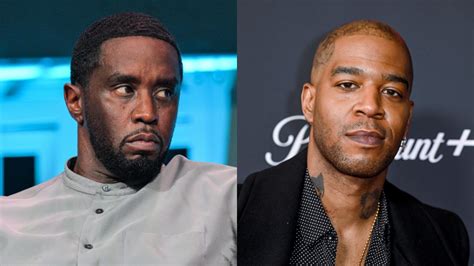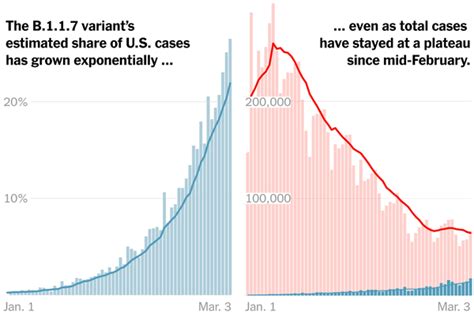
Sean “Diddy” Combs faces allegations of orchestrating the kidnapping of his former aide, Rodney “Lil Rod” Jones, to intimidate him into silence and prevent him from collaborating with rapper Kid Cudi, according to explosive testimony presented in court. Jones, who is already suing Combs for alleged sexual assault and abuse, made the startling claim during a recent deposition, significantly escalating the legal battles surrounding the music mogul.
Rodney “Lil Rod” Jones, who worked as a producer on Combs’ 2023 album “The Love Album: Off the Grid,” alleges that Combs ordered his confinement to prevent him from sharing information or potentially collaborating with Kid Cudi. Jones claims the incident occurred amid growing tensions between Combs and Cudi, although the specific nature of that conflict remains unclear in the provided testimony. “I was basically kidnapped,” Jones stated, adding that he felt threatened and feared for his safety during the alleged ordeal. The deposition testimony, detailed in court documents, outlines the alleged sequence of events leading to Jones’ confinement and the subsequent fear he experienced. Jones’ legal team intends to use this testimony to bolster their existing case against Combs, arguing that it demonstrates a pattern of intimidation and control.
The already complex legal landscape surrounding Sean Combs has become even more fraught with this new allegation. Combs is currently facing multiple lawsuits accusing him of sexual assault, harassment, and other misconduct. These allegations have spurred federal investigations into Combs’ activities, with law enforcement agencies executing search warrants at his properties in Los Angeles and Miami. The legal scrutiny and public backlash have significantly impacted Combs’ reputation and business ventures.
Jones’ initial lawsuit against Combs includes allegations of sexual assault, forced drug use, and creating a hostile work environment. In his lawsuit, Jones details numerous instances of alleged misconduct, including unwanted sexual advances and pressure to engage in illegal activities. Combs has vehemently denied all allegations, dismissing them as baseless and motivated by financial gain. His legal team has vowed to aggressively defend him against the charges.
The latest accusation of kidnapping adds a new layer of severity to the existing legal challenges. If proven true, it could expose Combs to additional criminal charges and further damage his already tarnished image. The deposition testimony also raises questions about the involvement of other individuals in the alleged kidnapping plot. Jones’ legal team is expected to present additional evidence to support their claims in upcoming court proceedings.
The unfolding legal drama surrounding Sean Combs has captivated the attention of the music industry and the public alike. As more details emerge and the legal battles intensify, the future of Combs’ career and legacy remains uncertain. The allegations have prompted widespread discussions about power dynamics, accountability, and the prevalence of misconduct within the entertainment industry.
In-depth Analysis and Expanded Context
The core of Jones’ claim revolves around the alleged kidnapping incident orchestrated by Combs to prevent any collaboration, information sharing, or contact between Jones and Kid Cudi. The motivations for Combs’ alleged actions are rooted in perceived threats, potential leaks, or perhaps competitive rivalries within the music industry.
Kid Cudi, known for his innovative music and open struggles with mental health, has maintained a somewhat enigmatic position in the industry, collaborating with a wide array of artists and often charting his own course, independent of mainstream trends. The specific nature of any prior relationship, business dealing, or conflict between Combs and Cudi remains largely speculative but clearly, according to Jones’ testimony, was significant enough to allegedly trigger extreme measures.
The alleged kidnapping, if proven, underscores the extreme power dynamics that can exist within the entertainment industry. The ability to allegedly order the confinement of an individual to prevent professional interactions speaks to a deeply ingrained culture where power and influence are wielded without regard for legal or ethical boundaries. It also raises critical questions about the vulnerability of individuals working for powerful figures in the industry and the extent to which they are protected from abuse and exploitation.
The legal ramifications of these allegations extend far beyond Combs’ immediate legal battles. They could potentially open the door for further scrutiny of his past business practices, relationships, and dealings, potentially uncovering other instances of alleged misconduct. Federal investigators are already examining various aspects of Combs’ activities, and the addition of a kidnapping allegation could significantly broaden the scope of their investigation.
Moreover, Jones’ willingness to come forward with these allegations, despite the potential risks and repercussions, highlights the growing movement towards holding powerful figures accountable for their actions. The #MeToo movement and similar initiatives have empowered individuals to speak out against abuse and harassment, creating a climate where victims feel more supported and less afraid to challenge the status quo.
The allegations also put pressure on the music industry as a whole to address issues of power imbalance and misconduct. Record labels, management companies, and other industry players are facing increasing scrutiny to ensure they are creating safe and respectful work environments for artists and employees. This includes implementing clear policies against harassment and abuse, providing resources for victims, and holding perpetrators accountable for their actions.
The narrative surrounding Sean Combs has significantly shifted in recent months, transitioning from that of a successful entrepreneur and cultural icon to one mired in controversy and legal battles. The allegations of sexual assault, harassment, and now kidnapping have tarnished his reputation and raised serious questions about his legacy. While Combs maintains his innocence and vows to fight the charges, the sheer volume and severity of the accusations have created a significant challenge to his credibility.
The impact of these allegations extends beyond Combs himself, affecting his business ventures, partnerships, and philanthropic endeavors. Many companies and organizations have distanced themselves from Combs in light of the allegations, and his future involvement in the entertainment industry remains uncertain. The legal proceedings are likely to be lengthy and complex, with the potential for significant financial and reputational consequences for all parties involved.
The allegations against Combs serve as a stark reminder of the pervasive issues of power imbalance and misconduct that can exist within the entertainment industry. They underscore the need for greater accountability, transparency, and respect for individuals working in the industry. As the legal proceedings unfold, the focus will be on uncovering the truth, ensuring justice is served, and creating a safer and more equitable environment for all.
Expanded Context and Analysis of Kid Cudi’s Position
While the core allegation centers around Combs’ actions toward Jones, Kid Cudi’s implied position in this narrative warrants further examination. Cudi, born Scott Mescudi, has cultivated a unique brand in hip-hop, often blending introspective lyrics with experimental sounds. His willingness to be vulnerable in his music, openly discussing his struggles with depression and anxiety, has resonated deeply with a generation of fans.
The nature of Combs’ perceived threat from a potential collaboration between Jones and Cudi is open to speculation. It could stem from professional jealousy, a desire to control the narrative surrounding his own music, or a fear that Jones might reveal damaging information to Cudi. The specific reasons remain speculative based on the available information.
Regardless of the motivation, the alleged attempt to prevent Jones from collaborating with Cudi underscores the extent to which Combs was allegedly willing to go to maintain control. It suggests a belief that Cudi’s influence or platform could be used to undermine Combs’ interests.
Cudi has not publicly commented on the allegations involving Combs and Jones. His silence could be attributed to a desire to avoid becoming embroiled in the legal battle, a lack of knowledge about the situation, or a personal decision to remain neutral. It is possible that Cudi may be called upon to testify in the future, depending on how the legal proceedings unfold.
The allegations against Combs have the potential to impact Cudi’s career, regardless of his direct involvement. His association with the case, however tangential, could raise questions among his fans and collaborators. However, given Cudi’s established reputation for independence and integrity, it is unlikely that the allegations will significantly damage his career.
In the broader context, the allegations involving Cudi highlight the complex web of relationships and rivalries that exist within the music industry. Artists often compete for attention, recognition, and market share, leading to tensions and conflicts. The allegations against Combs suggest that these tensions can sometimes escalate into extreme and potentially illegal behavior.
Further Analysis on Legal and Ethical Considerations
The allegations against Sean Combs present significant legal and ethical challenges. From a legal standpoint, the prosecution will need to establish a clear chain of evidence to prove that Combs ordered or orchestrated the alleged kidnapping of Rodney Jones. This will likely involve gathering witness testimony, examining communication records, and potentially analyzing financial transactions.
The defense, on the other hand, will likely argue that the allegations are false, motivated by financial gain, or based on unreliable evidence. They may attempt to discredit Jones’ testimony by highlighting inconsistencies or questioning his credibility. The burden of proof rests on the prosecution to prove Combs’ guilt beyond a reasonable doubt.
From an ethical standpoint, the allegations raise questions about the responsibility of individuals in positions of power to treat others with respect and dignity. If proven true, the allegations would demonstrate a blatant disregard for Jones’ rights and safety. They would also highlight the potential for abuse and exploitation within the entertainment industry.
The legal proceedings are likely to be closely watched by the public and the media. The outcome of the case could have significant implications for Combs’ career and legacy, as well as for the broader entertainment industry. The case could also serve as a deterrent to others who might consider engaging in similar behavior.
Regardless of the legal outcome, the allegations against Combs have already had a significant impact on his reputation. Many people have expressed outrage and disappointment in response to the allegations. The case has also sparked broader discussions about the need for greater accountability and transparency within the entertainment industry.
The allegations against Combs serve as a reminder that power and influence can be easily abused. It is essential for individuals in positions of power to exercise their authority responsibly and to treat others with respect and dignity. It is also important for victims of abuse and harassment to come forward and speak out, so that they can be heard and justice can be served.
Deep Dive into Power Dynamics in the Music Industry
The allegations against Sean Combs illuminate a disturbing reality about power dynamics within the music industry. For decades, the industry has been plagued by stories of exploitation, abuse, and harassment, often involving powerful executives and artists who wield considerable influence over the careers of others.
The power imbalance between established artists and aspiring musicians can create a fertile ground for abuse. Aspiring musicians may be willing to tolerate inappropriate behavior in the hope of advancing their careers. They may fear that speaking out will lead to retaliation or blacklisting within the industry.
Record labels and management companies also play a significant role in shaping power dynamics. These entities control access to resources, funding, and distribution channels, giving them considerable leverage over artists. Artists may be pressured to conform to certain expectations or to make compromises that they are not comfortable with.
The lack of transparency within the music industry can also contribute to abuse. Many deals and agreements are negotiated behind closed doors, making it difficult for artists to understand their rights and to challenge unfair practices. This lack of transparency can also make it easier for perpetrators to conceal their behavior.
The allegations against Combs highlight the need for greater accountability and transparency within the music industry. Record labels and management companies need to implement clear policies against harassment and abuse, and they need to provide resources for victims. Artists need to be empowered to speak out against abuse without fear of retaliation.
The music industry also needs to address the broader cultural norms that contribute to abuse. This includes challenging the notion that success justifies any means and promoting a culture of respect and dignity. By addressing these underlying issues, the industry can create a safer and more equitable environment for all.
The Broader Implications of the Allegations
The allegations against Sean Combs extend far beyond the realm of individual misconduct. They raise fundamental questions about accountability, justice, and the role of power in society. The case has the potential to reshape the music industry and to influence broader conversations about abuse and harassment.
The allegations against Combs have sparked a wave of outrage and condemnation. Many people have expressed their support for the victims and their determination to hold perpetrators accountable. The case has also prompted renewed calls for systemic change within the music industry.
The allegations against Combs have also had a significant impact on his legacy. Once celebrated as a successful entrepreneur and cultural icon, he is now facing widespread scrutiny and condemnation. His reputation has been tarnished, and his future in the entertainment industry is uncertain.
The case against Combs serves as a reminder that no one is above the law. Even the most powerful individuals can be held accountable for their actions. The case also demonstrates the importance of speaking out against abuse and harassment. By coming forward and sharing their stories, victims can help to create a more just and equitable society.
The allegations against Combs are likely to have a lasting impact on the music industry. They have prompted renewed discussions about power dynamics, accountability, and the need for systemic change. The case has the potential to transform the industry and to create a safer and more equitable environment for all.
The Road Ahead: Legal Process and Potential Outcomes
The legal process surrounding the allegations against Sean Combs is likely to be lengthy and complex. The prosecution will need to gather substantial evidence to prove that Combs committed the alleged crimes. The defense will vigorously defend Combs against the charges.
The outcome of the case is uncertain. If Combs is convicted, he could face significant prison time and financial penalties. His reputation would be further damaged, and his career in the entertainment industry would likely be over.
If Combs is acquitted, he would likely attempt to rebuild his reputation and resume his career. However, the allegations would likely continue to haunt him for years to come.
Regardless of the legal outcome, the allegations against Combs have already had a significant impact on the music industry. They have prompted renewed discussions about power dynamics, accountability, and the need for systemic change.
The case serves as a reminder that abuse and harassment are not tolerated in society. It is essential for victims to come forward and speak out, so that they can be heard and justice can be served. It is also important for individuals in positions of power to exercise their authority responsibly and to treat others with respect and dignity.
FAQ Section
1. What are the main allegations against Sean “Diddy” Combs in this case?
Rodney “Lil Rod” Jones alleges that Sean Combs orchestrated his kidnapping to prevent him from collaborating or sharing information with Kid Cudi. This is in addition to Jones’ existing lawsuit against Combs for alleged sexual assault, forced drug use, and creating a hostile work environment.
2. Who is Rodney “Lil Rod” Jones, and what is his connection to Sean Combs?
Rodney “Lil Rod” Jones is a music producer who worked on Sean Combs’ 2023 album, “The Love Album: Off the Grid.” He is suing Combs for alleged sexual assault, harassment, and creating a hostile work environment during his time working for the music mogul.
3. What is Kid Cudi’s role in this situation?
Kid Cudi is not directly involved in the lawsuit or allegations. However, Jones claims that Combs ordered his confinement to prevent him from collaborating or communicating with Cudi, suggesting a perceived threat or conflict between Combs and Cudi. The specific nature of their conflict isn’t detailed in the provided information.
4. What is the potential legal impact of these new kidnapping allegations against Combs?
The kidnapping allegations add a new level of severity to the existing legal challenges Combs faces. If proven true, he could face additional criminal charges and further damage to his reputation. It could also broaden the scope of existing federal investigations into Combs’ activities.
5. What has been Sean Combs’ response to these allegations?
Sean Combs has vehemently denied all allegations against him, including those made by Rodney “Lil Rod” Jones. His legal team has dismissed the claims as baseless and motivated by financial gain, vowing to aggressively defend him against the charges.









